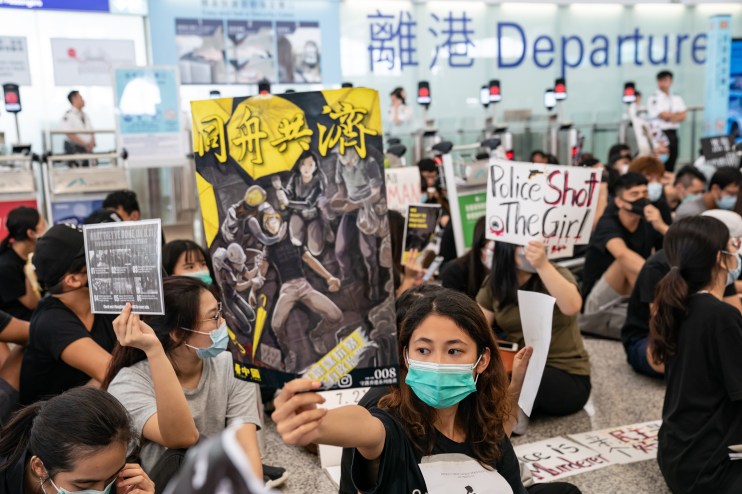The reality behind the benign China myth has been laid bare

For some time now, the British people have been sold a lie.
It is a whopper of epic proportions, and as significant a distortion of reality as was the mythology in the 1930s that Adolf Hitler’s territorial demands and desire to re-arm Germany were somehow normative, justifiable, and containable by the policy of Appeasement.
This contemporary lie centres around China.
Over the years, we have been told by successive leaders that China’s rise in the world is without drawbacks, that we have nothing to fear from a country with fundamentally different values to the west when it comes to democracy, freedom and human rights.
We’ve also been told that China is entitled to flex its muscles in its neighbourhood as befits a putative superpower re-ordering a regional set of alliances that had been established to suit the selfish needs of the US, and that we should welcome the influx of foreign direct investment that a rapidly growing China could provide to our economy.
This tendency reached its public apogee under the Cameron premiership, when the most fawning of state visits was put on for President Xi Jinping to inaugurate a “golden era” of trade that included official collusion in the hiding of protests that might offend the UK’s distinguished despotic visitor.
But, surprisingly quickly, the wheels have come off the China public relations wagon. In 2016, barely a month after David Cameron left office, the Hague-based Permanent Court of Adjudication ruled that China’s historic and contemporary territorial claims, pursued by force in the South China Sea, had no validity.
At a stroke, the unlawful nature of China’s military posturing had been laid bare for all to see.
Subsequently, we have learned that China’s interest in increased economic ties is not purely linked to benign mutual prosperity, but that significant strings are attached.
Sri Lanka found this out to its cost in 2017 when, weighed down by the burden of cumulative Chinese investment debt, it was forced to cede the strategic port of Hambantota in an egregious case of economic colonialism.
Meanwhile, it has been discovered that Chinese business behemoths like Huawei have significant links to the Chinese state that could lead to the security of the network infrastructure they are busy building worldwide being compromised.
The Chinese state itself stands accused by the US of being a currency manipulator that keeps the price of its exports artificially cheap.
In the far west of China, the world is now aware that Muslim Uighurs have been subject to extreme surveillance, with an estimated one million people in Xinjiang province now held in detention centres in conditions that demonstrate the value placed on human life by Beijing.
But it is what will happen next in Hong Kong that is likely to prove the defining moment in revealing the true face of China, and whether there is hope for redemption or if the die is cast in the path of regression and repression.
For 11 weeks now, mass protests have rocked the territory. What started as a demonstration against an extradition law has turned into a full-scale demand for greater democratic accountability in a city-state that was promised preservation of its own way of life when it was returned to Chinese rule by the UK in 1997.
The Joint Declaration signed by China pledged to support the freedom of expression, guarantee of human rights, and rule of law for 50 years. Yet in the past weeks, China has shown its contempt for such values by ignoring the strength of public feeling about the misrule of Hong Kong’s Chief Executive, and through the repeated use of police brutality.
As repeatedly hinted at by official Chinese sources, the unthinkable now appears possible: a full-scale military intervention to quieten the protests once and for all. Three decades after the bloody massacre at Tiananmen Square, such a move would demonstrate once and for all that China cannot be trusted.
It would be naive to assume that values should constitute the entirety of our approach to foreign policy. There will always be a need to engage with authoritarian states in pursuit of national interests.
But when the strategic and moral view begins to coincide, as it has done in the case of China, there can be no excuses for not making our displeasure with the course of events known – even if reprisals follow, as the Chinese have threatened (in a sadly typically bullying manner) over investment.
Britain today stands on the verge of Brexit and a new diplomatic age where we can remake our global posture and strategy to suit the needs of a 21-century power.
At the same time, Hong Kong stands on the brink of disaster, with a British-signed treaty in tatters.
It would be a grand statement indeed if Boris Johnson’s government broke with its predecessors and made its response to China’s treatment of Hong Kong a defence of the rules-based international order, as well as a symbol of Britannia resurgent.
Main image credit: Getty